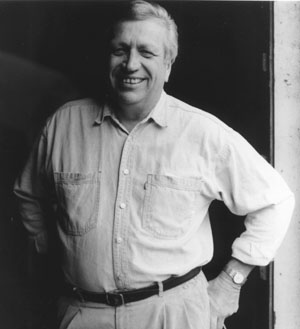"Clear-Cutting the Last Wilderness: Compromising
by
the Genomes of Our Major Crops"Wes Jackson
President
The Land Institute
Salina, Kansas
[Abstract of Presentation | Related Readings and Research Materials ]
Biographical Background

Wes Jackson, President of The Land Institute (founded in 1976), was born in 1936 on a farm near Topeka, Kansas. After attending Kansas Wesleyan (B.A Biology, 1958), he studied botany (M.A. University of Kansas, 1960) and genetics (Ph.D. North Carolina State University, 1967). He was a professor of biology at Kansas Wesleyan and later established the Environmental Studies program at California State University, Sacramento, where he became a tenured full professor. He resigned that position in 1976.
Dr. Jackson's writings include both papers and books. His most recent work, Rooted in the Land: Essays on Community and Place, co-edited with William Vitek, was released by Yale University Press in 1996. Becoming Native to This Place was published in 1994 and sketches his vision for the resettlement of America's rural communities. Altars of Unhewn Stone appeared in 1987 and Meeting the Expectations of the Land, edited with Wendell Berry and Bruce Colman, was published in 1984. New Roots for Agriculture, 1980, outlines the basis for the agricultural research at The Land Institute.
The work of The Land Institute has been featured extensively in the popular media including The Atlantic Monthly , Audubon , The MacNeil-Lehrer News Hour, and National Public Radio's "All Things Considered." Life magazine named Wes Jackson as one of 18 individuals they predict will be among the 100 "important Americans of the 20th century." He is a recipient of the Pew Conservation Scholars award (1990) and a MacArthur Fellowship (1992).
[ Abstract of Presentation ]
***
For additional material see Related Readings and Research.